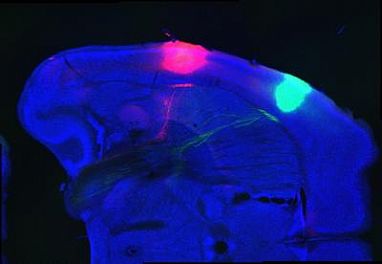How taste is perceived in the brain
People and other mammals rely on taste to guide food choices. For example, we’re attracted to sweet foods, which are usually rich in energy. A bitter taste, on the other hand, may be a warning sign of potentially harmful chemicals.
Over the past 17 years, the laboratories of Dr. Nicholas Ryba of NIH’s National Institute of Dental and Craniofacial Research (NIDCR) and Dr. Charles Zuker from the Howard Hughes Medical Institute at Columbia University Medical Center have identified the receptor cells in the tongue that detect sweet, sour, bitter, umami (savory), and salt tastes. Information from these cells is relayed to the primary gustatory cortex, or taste cortex, in the brain.
This page was last updated on Friday, January 21, 2022
